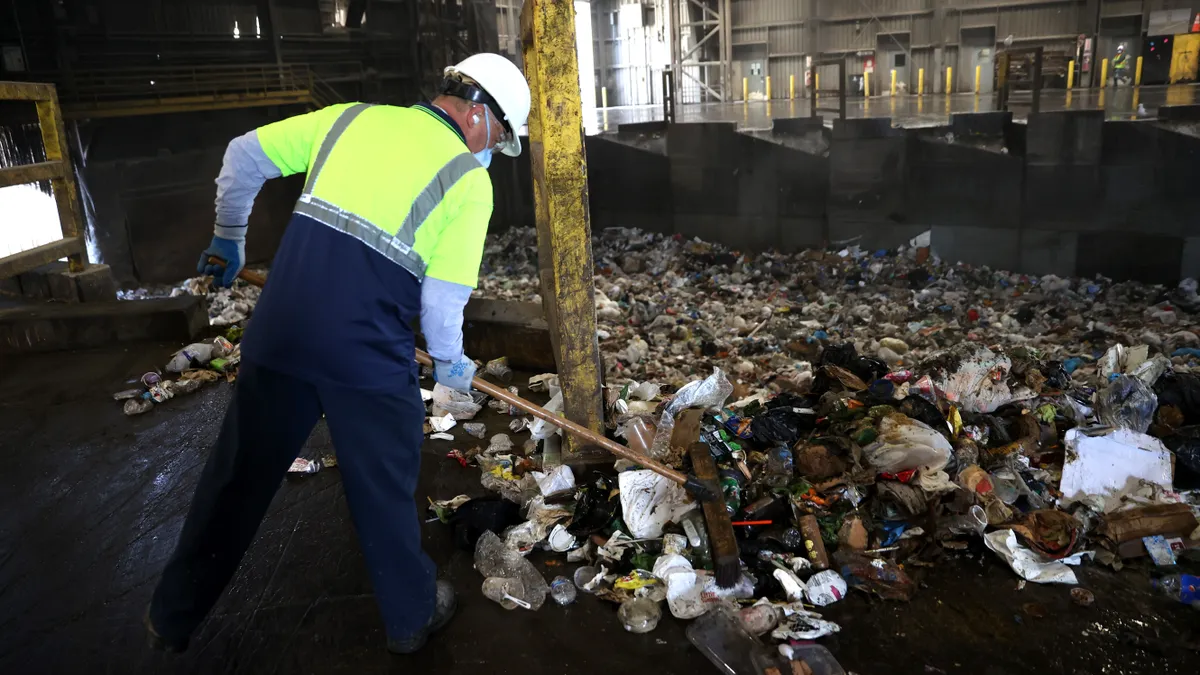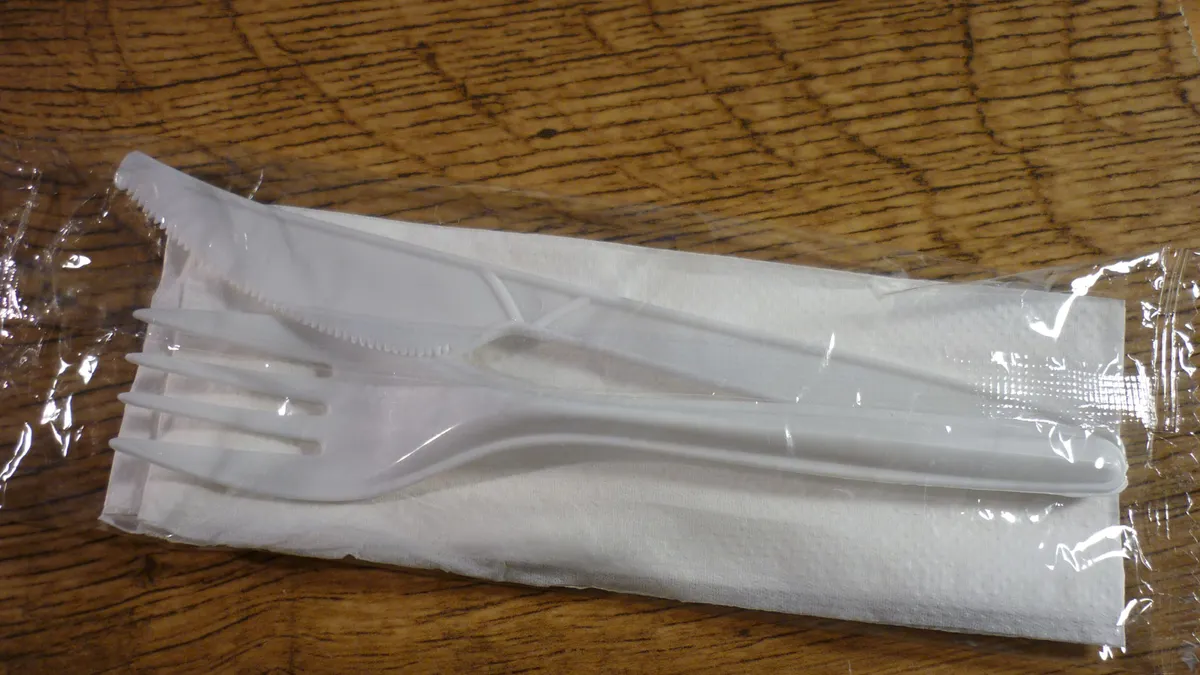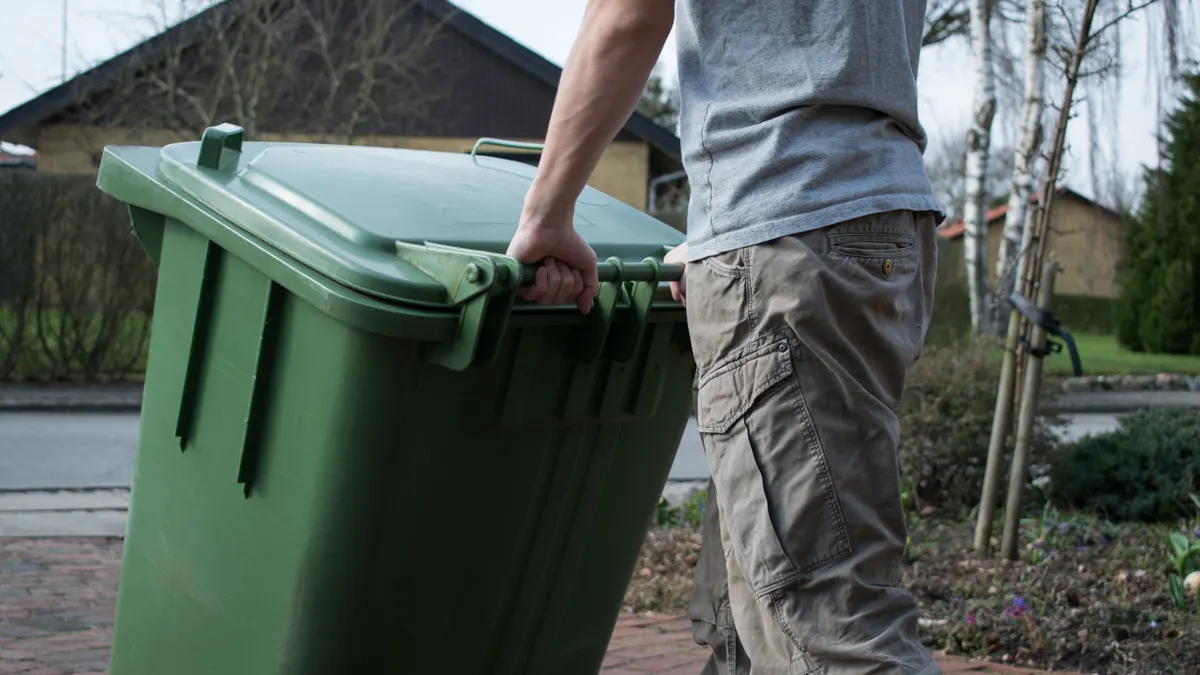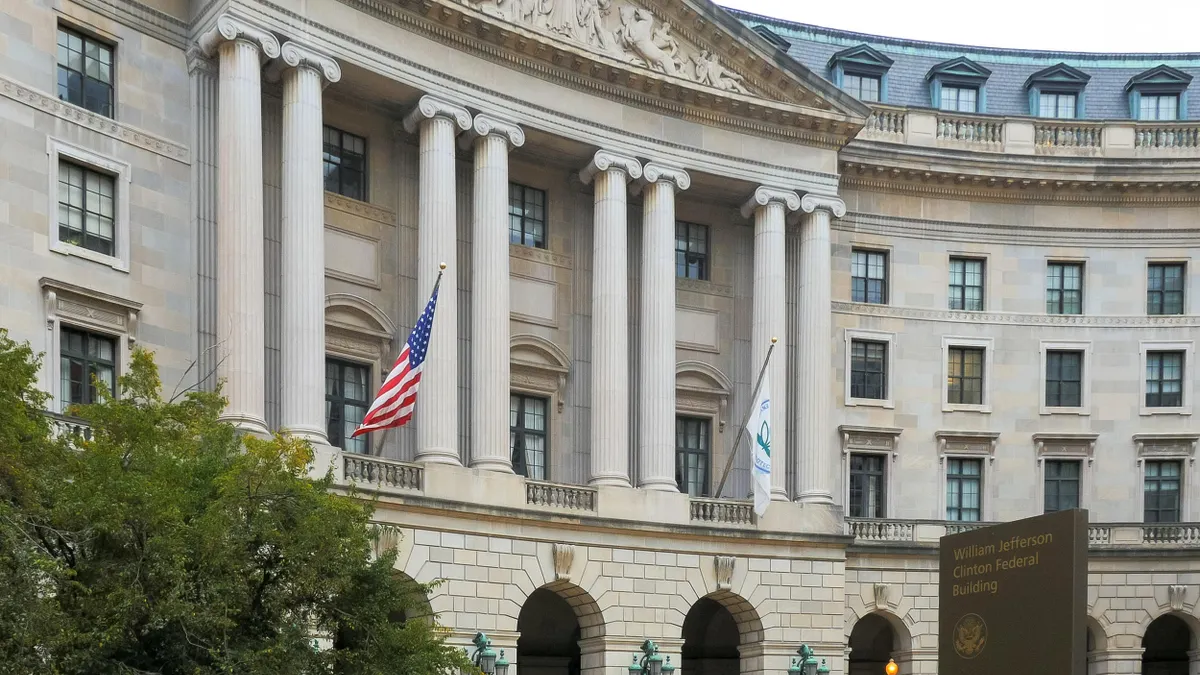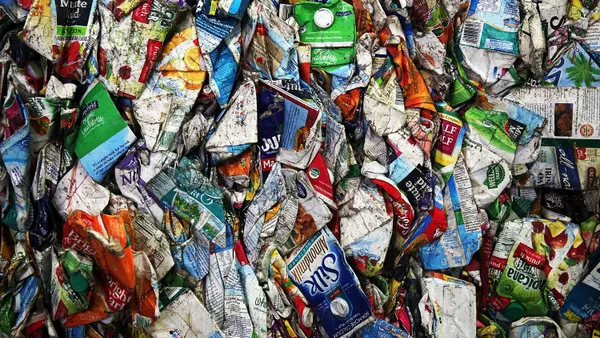New Hampshire has been one of the New England states hit hardest by rising recycling costs and tight end markets.
Last month, state legislators approved a bill establishing a committee that will determine next steps by studying the state's recycling streams and solid waste management system. A recent signature by Gov. Chris Sununu means that plan will now move forward.
Primary sponsor Rep. Karen Ebel told Waste Waste Dive she introduced the bill (HB 617) "out of concern for the municipalities" upon hearing about the current market challenges. Some cities in New Hampshire, especially those with single stream programs, have ceased their recycling programs because they no longer have viable markets for their materials.
Plastics were the initial focus, but legislators learned of pressure on other commodities — including mixed paper — during the hearing process. Information on how, for example, ending a recycling program could affect landfill capacity also led to an amendment expanding the study group's scope.
"I've come to appreciate what a broad, challenging topic this is. I've also come to appreciate that just recycling isn't going to solve a lot of the issues," Ebel said. "Municipalities are on the front lines of dealing with the waste that's being generated in their communities. The costs of getting rid of that waste are increasing more and more, and it's being borne by the taxpayers. From an economic standpoint ... we need to help them find a way out of this, because I don't think it's something one individual town can do."
Need for data and direction
Three members of New Hampshire's House of Representatives and one member of the state Senate would be chosen to serve on the committee. The legislation indicates they would study three topics: the state of New Hampshire's recycling programs in light of current market conditions; state and municipal challenges with recycling and solid waste management programs; and other related issues the committee deems necessary, including potential legislation. Findings would be due on or before Nov. 1.
The state's Department of Environmental Services (DES) wrote a letter of testimony and support for the bill. Regional recycling organizations are similarly supportive.
"It's a good idea to have this study committee because there's a lot of misinformation about what's going on with the current recycling markets," said Reagan Bissonnette, executive director of the Northeast Resource Recovery Association (NRRA). "When I speak to the public, they hear that recyclables are going to landfill and want to know if it's true."
Still, not everyone is clear on what the committee is trying to accomplish.
"To me, this legislation is redundant ... What's being asked of the four appointed legislators is already required of DES," said Kirstie Pecci, director of the Zero Waste Project and a senior fellow at Conservation Law Foundation (CLF).
In fact, there could be some overlap. DES is required to update its solid waste management plan every six years, and the statute mandates that it include some of the information the legislative study group might examine. But DES is chronically behind on issuing an updated plan due to various challenges, including budget cuts, explained agency environmental analyst Michael Nork. The last one was released in 2003. However, DES is in the process of drawing up a new plan and hopes to release a draft in the coming months.
"If we have a draft of the solid waste management plan ready when the committee is meeting, it might feed the conversation and vice versa," Nork said. "We're happy to participate in the [committee's] process, but it's not up to [DES] to decide what comes out of it."
The committee's report is seen as more likely to address specific issues involving local recycling markets, current challenges and the effects on municipalities than what would be included in DES' solid waste plan. Exact goals would be established upon committee formation.
Next steps
If the committee does form, and legislators decide to recommend further policies or action items related to recycling and waste management, organizations have some ideas about state specifics to act on.
"One issue that's hitting New England and New Hampshire hard is glass. There used to be a number of markets for recycling glass locally," Bisosonnette said. However, she noted, one of the last regional recycled glass purchasers — bottle manufacturer Ardagh — closed last year, and communities are now struggling with how to handle glass and the costs related to disposing it.
She added that while composting is not directly considered "recycling," it affects overall waste management systems and represents another area of opportunity for legislators.
Single-use plastic items are another hot topic locally.
"We know that plastic bags ... gum up the equipment at sorting facilities. It's important to ban them if we want good recycling programs," said CLF's Pecci. She noted that bans for single-use plastic items — such as bags, straws, and food or drink containers — have already passed this year in other Northeast states, including Connecticut, Maine and Vermont.
While she couldn't definitively say what might be in a committee report, Rep. Ebel also anticipates single-use plastics coming up — at least during the research phase.
"We've had a lot of discussions in the state ... regarding concerns about plastic," she said. "I expect we're going to talk quite a bit about that issue, but not focus only on that. The world is generating an awful lot of trash, and we've got to find better ways of handling it."







